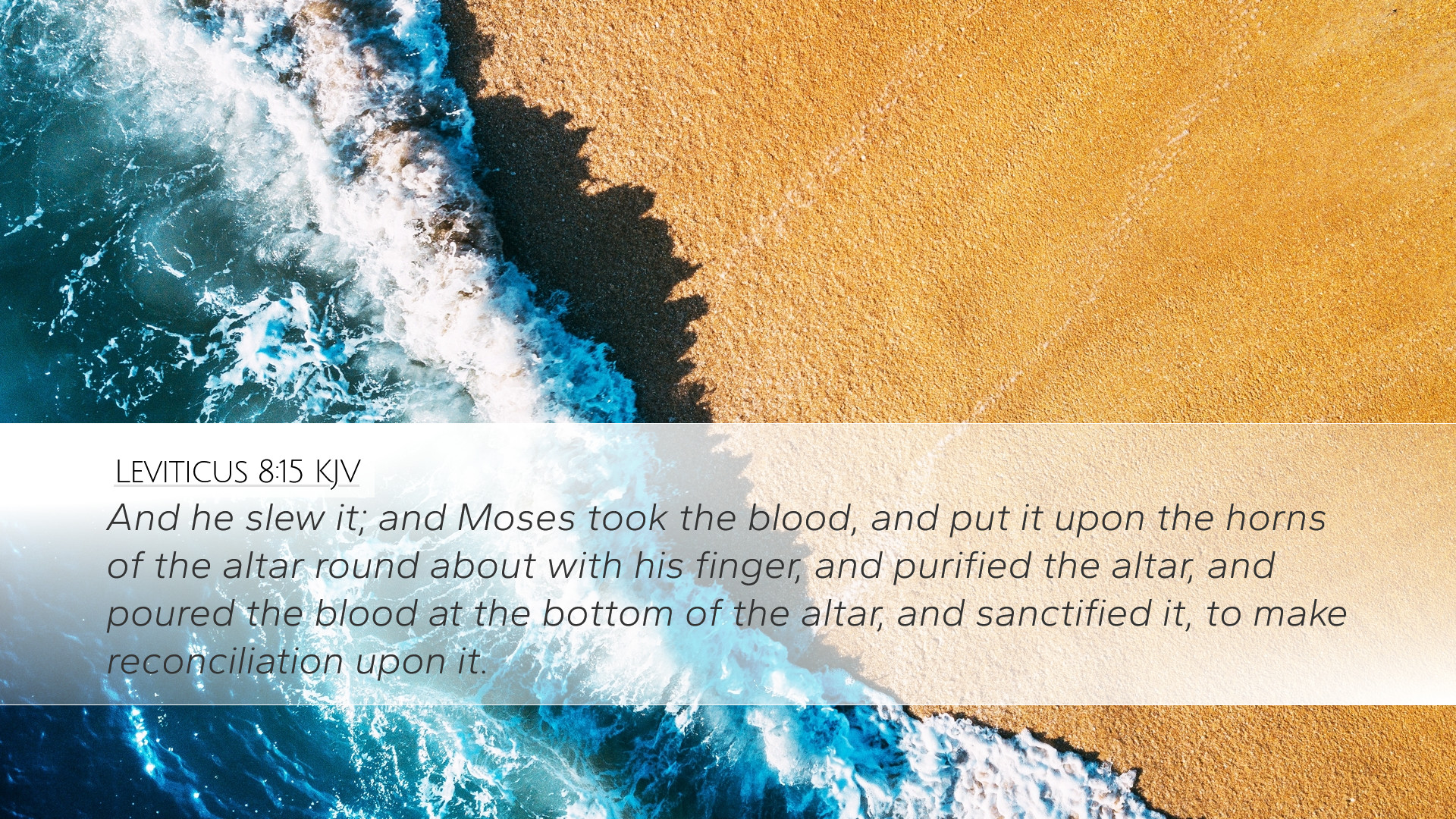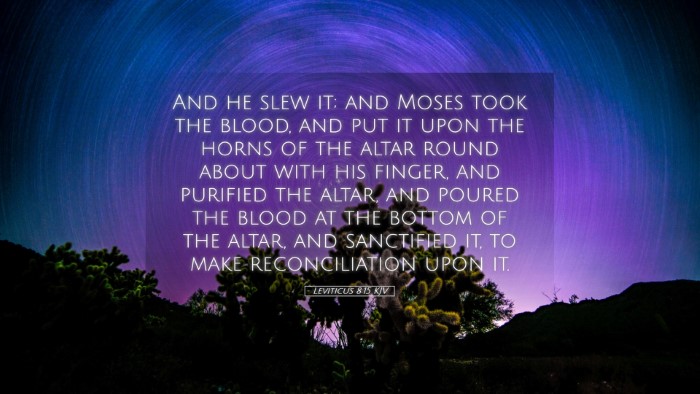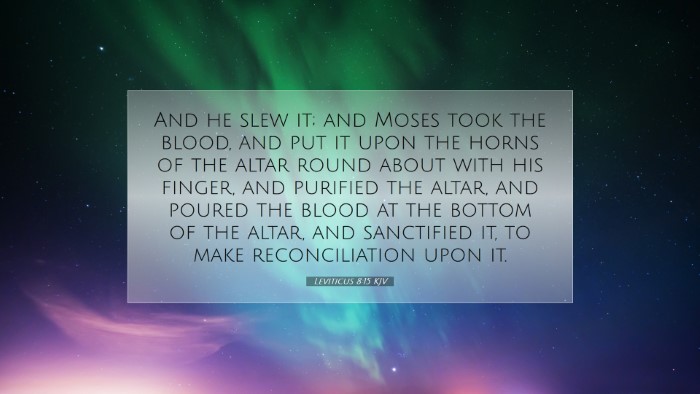Commentary on Leviticus 8:15
Leviticus 8:15 states: “And he slew it; and Moses took the blood, and put it upon the horns of the altar round about with his finger, and purified the altar, and poured the blood at the base of the altar, and sanctified it, to make an atonement for it.” This verse highlights the chapter's crucial themes of consecration, atonement, and the establishment of a priestly order within the Israelite community.
Contextual Overview
The chapter describes the ordination of the priests, particularly Aaron and his sons, which was fundamentally significant for the nation of Israel. This event marked a formal initiation of the Levitical priesthood, setting apart a specific tribe for the service of worship. Understanding this context is essential for unpacking the meaning of the sacrifices made and the application of blood in the sacrificial system.
The Significance of Sacrifice
Matthew Henry emphasizes the deep-rooted significance of sacrifice in worship and relationship with God. The act of slaying the animal represents the gravity of sin and the necessary action required to atone for it. The animal's blood symbolizes life and the need for purification, an essential aspect in approaching God:
- Necessity of Atonement: The blood signifies the cost of atonement; without the shedding of blood, there is no remission of sins (Hebrews 9:22).
- Symbolism of Holiness: The idea of sanctifying the altar underscores God's demand for holiness in worship and the seriousness with which He regards sin.
Moses' Role and Actions
According to Albert Barnes, Moses acts under divine command, illustrating the obedience required of leaders in fulfilling their God-given responsibilities. Moses’ meticulous attention to the details of the sacrificial ritual denotes the seriousness with which the covenant community must approach God:
- Obedience to Divine Instruction: Moses does not take liberties but follows God’s directives precisely, showing that ritual purity and obedience are non-negotiable in divine worship.
- Authority of Leadership: In acting as God’s chosen leader, Moses serves as an intermediary, emphasizing the role that ordained leaders play in bringing the community closer to God.
Blood and Atonement
Adam Clarke’s commentary on blood as an atoning agent is particularly illuminating. He presents blood as the means through which life is given and sins are covered, which resonates deeply in the New Testament understanding of Christ as the Lamb of God:
- Atonement as Divine Grace: The act of purifying the altar with blood connects to the grace of God, foreshadowing the ultimate sacrifice in Christ (see Exodus 29:10-14).
- Consecrating the Altar: The application of blood serves both to cleanse the altar, indicating its use for holy purposes, and as an offering of life restored to God.
Theological Implications
This verse holds significant theological implications about God's nature and the relationship between humanity and the divine:
- God's Holiness: God demands a high standard for holiness. The sanctification of the altar signifies that God is separate from sin and requires a means to address sin among His people.
- Human Response: The act of making atonement is a response to God’s righteousness, showing Israel’s understanding that they could not approach God without proper mediation and sacrifice.
Applications for Today
While the immediate context of Leviticus may seem distant from contemporary worship practices, the principles conveyed in this verse resonate powerfully for modern believers:
- Understanding Atonement: Just as Aaron’s priestly role foreshadowed Christ’s ultimate sacrifice, today’s believers are called to grasp the depths of grace through Christ's atonement.
- Holiness in Worship: The invocation of blood in worship reminds believers to approach God with reverence and acknowledgment of His holiness. Individual lives are to be ‘living sacrifices’ (Romans 12:1).
- Leader’s Responsibility: Church leaders today are reminded of their duty to lead with authority and obedience, ensuring that they correctly handle the Word of God and the sacraments.
Conclusion
Leviticus 8:15 represents a pivotal moment in the establishment of the priesthood and the sacrificial system of ancient Israel. It serves as a reminder of the serious nature of sin, the need for atonement, and God’s holiness. For pastors, students, theologians, and Bible scholars, this verse provides rich material for understanding the continuity of biblical themes related to sacrifice, mediation, and worship throughout scripture, culminating in the person of Jesus Christ.


